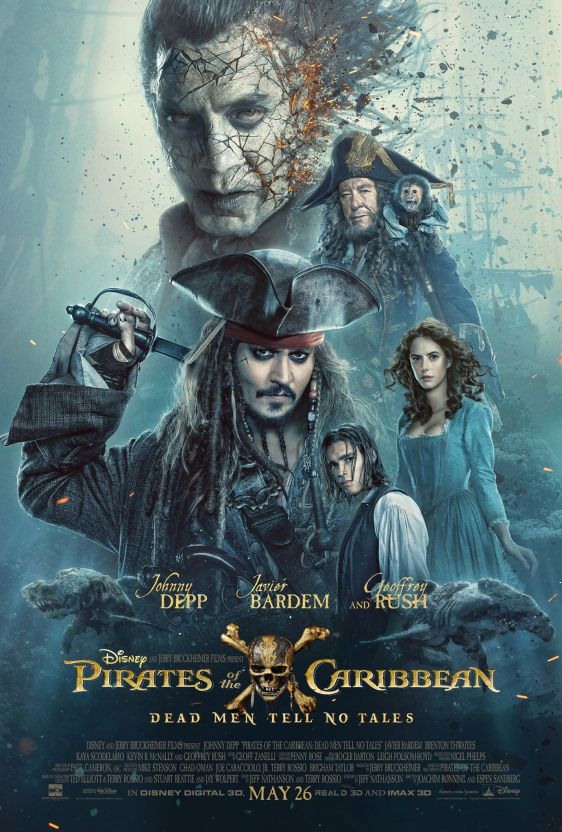
What I knew going into this film is what everyone will know – that comedian Kumail Nanjiani is finally playing a lead role in a deeply personal story that he co-wrote, about his courtship with his wife Emily (Zoe Kazan). That they would explore the pitfalls and difficulties of cross-cultural romance between a first-generation immigrant whose parents wish him to have an arranged marriage, and an American therapist from North Carolina. What I didn’t know is that following a single act of naturalistic romance (and a bit of that “comedians playing themselves” stuff you see on FX shows and Judd Apatow films), Emily would exit the film into a serious health crisis, and the next courtship would begin – between Kumail and his future wife’s parents, Beth (Holly Hunter) and Terry (Ray Romano). The Big Sick never ceased to be a comedy, even as it was becoming a harrowing family medical drama. There were multiple jokes that caused me to guffaw for so long that I missed the next two or three lines of dialogue, in between revelations about Emily’s continuing decline and mysterious ailment. This is a story like nothing I’ve ever seen, except perhaps Jonathan Levine‘s 50/50 put through a filter of ‘How I Met Your Mother‘. Every moment of this film felt completely human to me, and that’s what made it work so well. Not the jokes – which were hilarious – nor any uncertainty over the film’s ultimate outcome. The tension of The Big Sick comes from the notion that these are real people dealing with some real shit.
They meet ordinarily enough. Kumail is performing on-stage, Emily woos him (“WOO!”) when he asks if anyone here is from Pakistan, and he finds her afterward to give her some flirtatious chiding for heckling during his set. She flirts right back, they end up back at his place for a hookup. After, she gets dressed under a sheet, and the banter continues over the absurdity of her getting dressed under cover after they’ve just had sex. I mention this moment in particular because not only does the dialogue never cease to be completely comfortable and naturalistic, but the relationship (which we see in vignette and montage form over the course of the first act) is replete with details like this, that seem too oddly specific or embarrassing to not be true. I do wonder how I might’ve felt about these moments if I didn’t know that these two end up as the married screenwriters of this film, but I’m not sure how many people will have that experience. Many of these moments felt, perhaps, a bit heightened, but all of them felt real.
And then it gets very ugly very quickly. I won’t spoil the complete chain of events, but Kumail’s family expectations that he’ll marry a Pakistani girl (that they choose for him) butt up against their relationship, the latter takes a dive, and then she gets sick. That plot description usually portends an aggressive turn to the dramatic, but I must emphasize that this never stopped being a comedy. Emily’s friends call Kumail because he has just been her boyfriend, she’s in serious medical trouble, and they’re unable to stay any longer because of jobs, academics, life… He realizes how much he cares, when he is suddenly thrust into responsibility for her so early into the relationship, in the form of a doctor asking him one question after another before Emily is dropped into a medically-induced coma, with his authorization, as her…husband.
Her parents arrive and are outright hostile toward him, because they know that (as they see it) he broke their daughter’s heart. And yet, they bond. This is some messy, human nonsense right here. There are no clean lines or definitions to these relationships. It is completely unclear to the people involved whether Kumail and Emily will be together at the end of this, or whether these three will have any reason to ever speak again. But still they bond. Because the one thing they all have in common is that they’re all in the trenches on Emily’s team. The parents are a fine portrait of unfathomable worry, but Holly Hunter is particularly masterful. The three make a reluctant foray to a comedy club where Kumail’s show goes awry (and both parents get shockingly profane for the first time), and then they find themselves getting hammered at Emily’s apartment. Kumail and Beth decide to drink whiskey and “stress-eat” after Terry passes out on the couch, and they try to talk about anything but Emily’s impending surgery. Later on, Terry sleeps at Kumail’s place and they chat awkwardly in the dark about the struggles in Terry’s marriage. All of this works. These scenes have time to breathe, and ring constantly true. These people grab onto each other – not without hesitation – in an impossible situation, and they remain raucously funny as they handle it.
Kazan ultimately plays a side character, and does a fine job with it in the first and last acts. But this is not a choice I would’ve understood coming from screenwriter Emily V. Gordon if not for the specific turns of this story. Ultimately, Gordon’s greatest contribution to the film (apart, presumably, from an insight into how her fictionalized parents should act), is respect for movie-Emily’s agency at the film’s end. This is merely a chapter in the couple’s love story, it’s not one in which she plays a prominent role, and that’s fine. It’s not a fairy tale, and she doesn’t wake up feeling any differently about the issues that drove her and movie-Kumail apart in the first place. This works for the same reason that the relationship between Kumail, Beth, and Terry works- it’s honest and uncompromising, and showcases the best of each of them.
FilmWonk rating: 8.5 out of 10

I kinda want to drop by Thomas Middleditch‘s house and ask if he’s okay. His character, Ben Larsen, begins the movie Entanglement with an elaborate suicide attempt, and then we flash to him brooding (and alive) six months later. I last saw him play lead in Joshy, a film in which his fiancee commits suicide, and then we flash to him brooding (and alive) six months later. This is an actor and comedian that I quite enjoy – his awkward straight-man Richard on Silicon Valley is a classic character who has to deliver some surprising emotional range through the ungainliness of a nerdy developer, and his repeated appearances on the Comedy Bang Bang podcast have shown him to be a talented improv comic as well. Jess Weixler cut her teeth as the lead in…er…Teeth, a horror film with a single, repeated joke/scare that she was a uniquely essential component for, and she has made occasional TV appearances since. Like Anna Camp before her, she is generally a delightful, underused presence. Keep these compliments in mind, because Entanglement is flat-out terrible, and I have a difficult time blaming these actors for it.
When Hanna (Weixler) meets Ben at a drugstore while shoplifting, I realized I may have lost all tolerance for invasive meet-cutes. Perhaps it was Bad Santa 2, in which multiple women seduce Billy Bob Thornton while he is blind-drunk and covered in a urine-soaked Santa suit, that pushed me over the edge, but I just have a hard time buying that so many of these brooding sad sacks are beating women off with a stick. Yes, the scenes are usually fun, and actors are cast for their mutual chemistry (Bad Santa 2 being a notable exception on both counts). But that does not mean that meeting in a random drugstore is still a thing that strangers do in 2017, and the film’s forced whimsy and shallow female characters don’t end there. Ben’s neighbor Tabby (Diana Bang) drops in while he’s out and cleans his apartment, apparently not for the first time. It bugs him, he says he needs to ask for his key back, but she keeps doing it. This irritating pattern only continues as the film goes on. He’s getting therapy from a friend who’s a child psychologist. She points out how weird this is. He’s seemingly only there to banter insultingly with her child patients, one of whom gives him a child’s fairytale book that helps him seduce…I’m getting ahead of myself. Ben’s father has a heart attack, and reveals, on his near-deathbed (which Ben doesn’t seem overly concerned about) that Ben’s parents very nearly adopted a baby girl, right before his mother found out she was pregnant with him, and so they gave her back. This seemingly innocuous factoid throws Ben for a loop for some reason. He could’ve had a sister this whole time! He returns to the serial-killer yarn board in his apartment (where he maps out all of the different events in his life in an effort to see where it all went wrong), and determines that his nearly-sister is the key to his future happiness.
I would’ve been fine with accepting this odd motivation on its own terms, but I can’t overstate how poorly Ben values his hypothetical sister as a human being. Each time he discusses what she might mean to him, it’s always in terms of what she can offer him – she might’ve taught him how to dance, or talk to girls. She might have reminded him to call their mom on Mother’s Day. Somebody buy the kid a smartphone – Siri can do most of that these days. And of course (of course) it turns out to be Hanna. And of course they have a weird romance. And of course it gets whimsical really fast, with the manic pixie dream girl tropes plastered across the camera like paintballs even when they’re not visually enhanced by actual CGI weirdness – underwater jellyfish, faux-stop-animated deer, floating planets on a wall…
Let it never be said that I can’t cherish whimsy – even the sad, brooding sort. Amélie and Eternal Sunshine are my jam. Swiss Army Man, which featured a bromance between Paul Dano and a farting corpse, was in my Top 10 for last year. And I’m sure some will say that this film’s shallow plot twist justifies its excess. Let me be clear: it does not. Entanglement is aggressively bothersome, and no narrative trickery – even the type that attempts to recontextualize the film as a psychological drama – can make that right. Its musical score is a ceaseless, invasive loop of callow piano punctuated seemingly at random by 1950s Americana deep cuts, and its dialogue is a torrent of superfluous, rapid-fire banter intercut with strained, half-understood physics or textile metaphors. And more to the point, there is not a single authentic moment or human interaction in this entire film. Even without such a strong counterpoint as The Big Sick to compare it to, Entanglement falls flat, smashes through, and plunges into a bottomless hole in space-time.
FilmWonk rating: 1 out of 10






